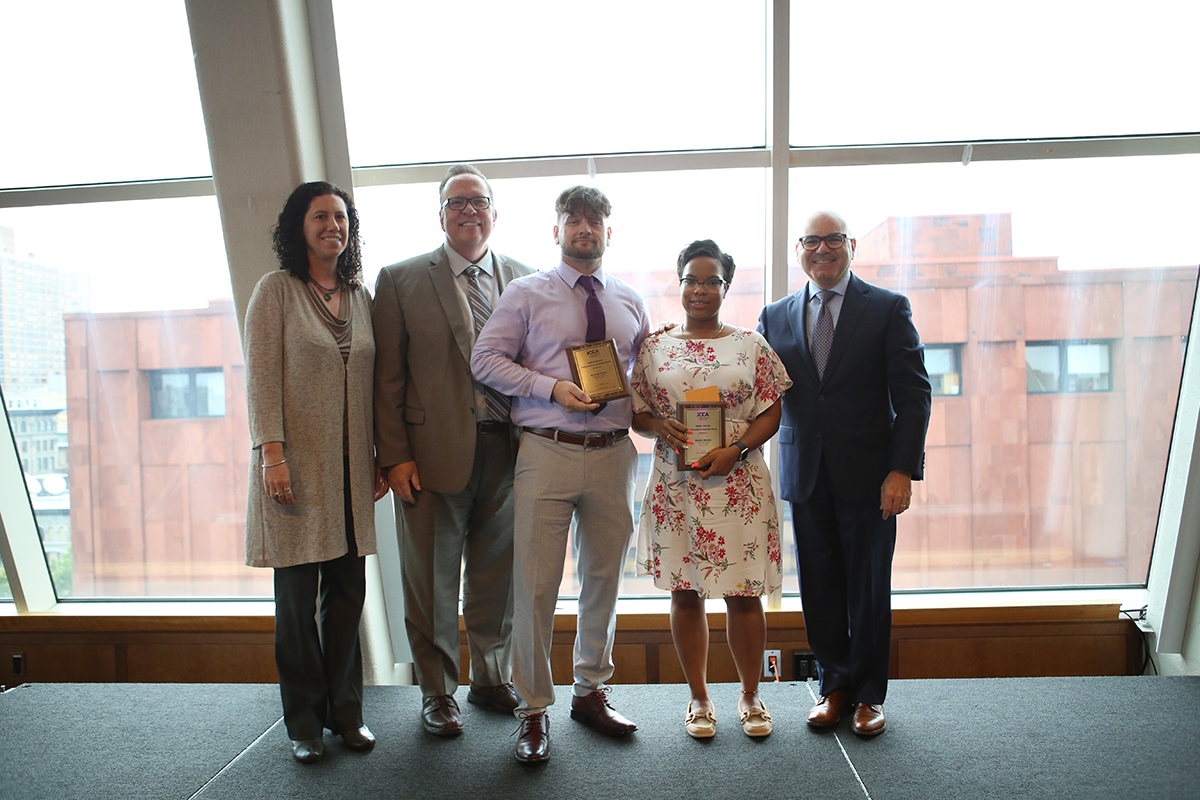
Every year, JCCA’s Robert Maslow Awards for Excellence in Practice recognize employees who have gone above and beyond their duties in support of JCCA’s mission. For a glimpse into the passion and dedication that power JCCA’s life-saving work, read our interview series profiling a few of the 2018 Maslow Winners.
Michael Taylor
Residence Supervisor, Edenwald
JCCA: What are the challenges of your work?
MT: Many of the kids in my cottage are on the autism spectrum, so they have a variety of emotional and behavioral problems, including aggression. And they often struggle with transitions. For example, a child may have difficulty returning to campus after a family visit. So we have to allow him the space and time to settle back in and engage with cottage life.
JCCA: What sorts of treatment plans and support systems have you and your colleagues developed to help?
MT: One of our support systems highlights areas in which kids need additional support, and the residents earn rewards when they make progress in their goals. For example, we had a XX-year old child who needed to be potty-trained, so we tracked the small milestones he achieved throughout the day, allowing him to “earn” field trips, parties, or staying up a bit later at night. We’ve also helped our kids recognize their own and others’ emotions and feelings, which is very important for children on the spectrum. Developing those socio-emotional skills has had incredible results. Physical interventions to prevent children from hurting each other are almost nonexistent now.
JCCA: What are the strengths of your program?
MT: A structured routine builds trust and gives the boys a sense of certainty, but our strength is in the flexibility that allows staff to adjust the program as needed. We work on hygiene and skills-building in areas that need improvement, e.g., how to concentrate and stay focused, how to make a bed, and how to experience quiet time. By rewarding success instead of penalizing behavior, we give the kids the tools they need to manage their emotions while they live here and after they leave the program.
JCCA: What do you find most satisfying about the work? Most challenging?
MT: It’s great to watch a young person’s growth where you didn’t think there would be any movement. And we love to see our kids express joy about their successes. One of our challenges is navigating the dynamics of the group. We need to be aware of age differences between the boys, especially when it comes to issues that older boys are experiencing, such as puberty.
JCCA: Any client stories you can share?
MT: When K. first came to the cottage, he had problems with taking showers. After some conversations with him, we realized his resistance wasn’t really about the shower, but about the soap getting into his eyes. So we got him goggles and now he’s able to take showers with much more confidence.
J. is young man with a limited vocabulary. When he first came to the cottage, he was pretty aggressive. It’s hard to live in a communal setting when you can’t say what you need! Once we began teaching him additional words, his behavior improved and he’s now getting along much better with people.
